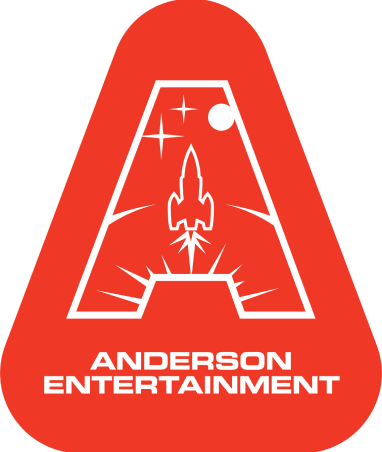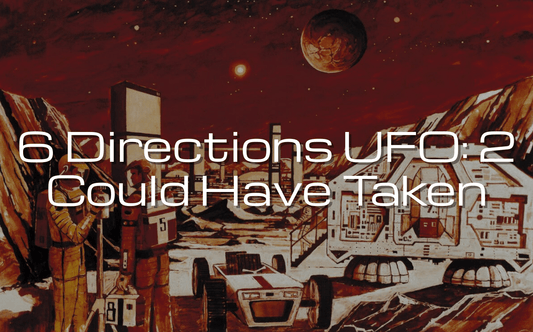Shadows of Armageddon: Investigating James Swallow's UFO & Space: 1999 Novellas
Share
Share
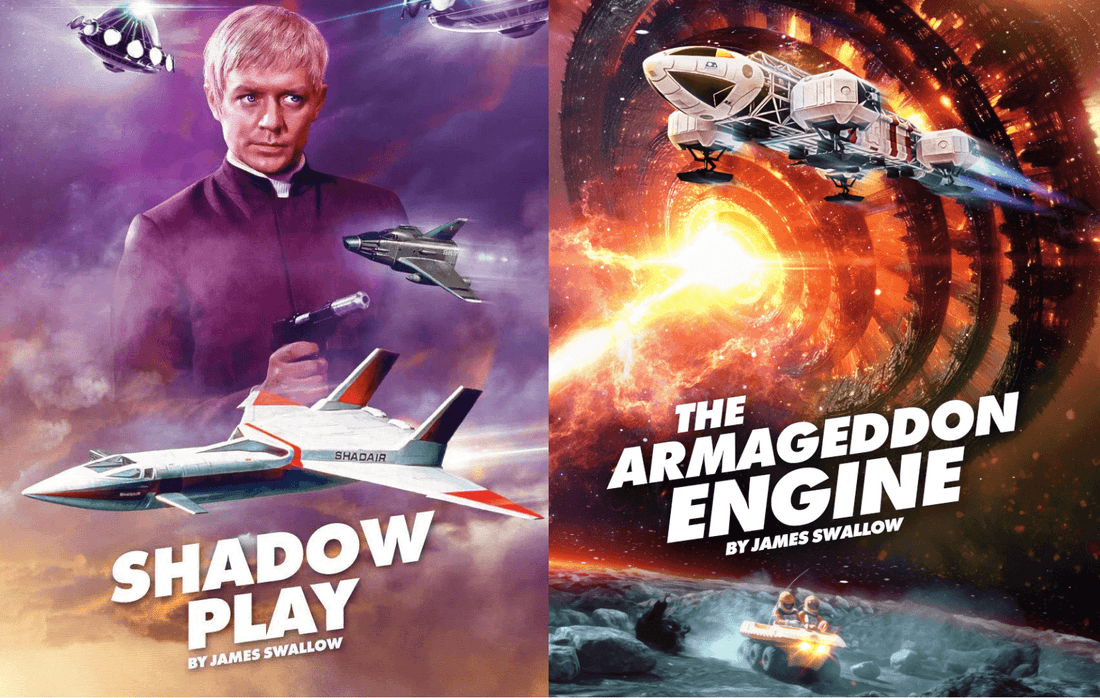
Despite being two thematically separate TV series, UFO (1970-71) and Space: 1999 (1975-76) remain undeniably linked by their live-action credentials, tonal similarities in being darker sci-fi compared to Gerry Anderson's earlier puppet series, and their production proximities, with Space: 1999 born out of failed plans for UFO's continuation. Such are their continued mirrored identities that novelist James Swallow has written a pair of brand new adventures for the crews of SHADO and Moonbase Alpha, and takes an enjoyably faithful expansion of two of Gerry Anderson's best-loved series.
Writing the Future
A defining reason why UFO: Shadow Play and Space: 1999: The Armageddon Engine are hugely enjoyable is their immersive authenticity. They feel less like novellas and more like written versions of classic episodes from each series. Rather than reinvent either series, James situates the events of both stories within the walled gardens of their respective source material. The concise novella format aids in the sensation that these read like lost TV episodes.
In both adventures, Swallow efficiently makes the novellas accessible for new readers and substantial enough for long-time classic fans. Both stories are jam-packed with strong acknowledgements to past events, ensuring readers that we're safely in the hands of an author who's done their homework. Simultaneously, neither novella risks overwhelming less familiar readers who may not know as much lore of each series. With this format in place, both Shadow Play and The Armageddon Engine provide compelling new sagas for UFO and Space: 1999.
Shadow Play

UFO: Shadow Play is the more raucous of the two novels, packing in a brisk, punchy pace. The story opens with Ed Straker emerging from offering himself as a test subject for SHADO's latest mental experimentation, but the real experiment begins now. Reality and fantasy appear to violently collide into one another when Straker stumbles upon a secretive plot to destroy SHADO from within. Can Straker uncover the truth before the truth itself kills him?
Shadow Play is practically a Straker solo adventure and is neatly in tune with the far freakier episodes from the twilight of UFO's run. Fans of Timelash, Mindbender and Reflections in the Water will find much to savour with Shadow Play. Throughout the story, Straker is pushed to his psychological limits, which is communicated with a stimulating intensity as if Swallow himself was one of SHADO's doctors probing Straker's deteriorating mental state. The development of an ESP detector triggers into motion a thrilling story of how reliable memory and send of self can be.

Swallow also effortlessly taps into the wider themes of UFO. Shadow Play embraces the reactionary trauma endured by those defending the world from an alien invasion whilst having to keep that invasion secret, as well as the bureaucratic power plays that Straker must endure in convincing higher powers that the extortionist cost of running SHADO is continually justified. However, what makes the novella particularly satisfying for long-time fans is how its events build and extrapolate on established events seen throughout the series. A sense of escalation swells throughout the series as both the humans and aliens come to learn of each other's motives and movements - and how SHADO is continually learning of the most effective means of warding off the aliens.
Shadow Play's authenticity stretches beyond Straker. Alec Freeman, Paul Foster and Doctor Jackson all contribute to Straker's unravelling and are written with a pleasingly convincing approach to their dialogue and characterisation. Some of the story's best moments come from the confrontational moments between Straker and the icy cool Jackson. You can really *hear* Vladek Sheybal's voice as these quiet yet deadly scenes between supposed allies twists reader expectations.
Shadow Play's chapters are written in short, sharp bursts, adding a sense of economic tension to the story. The action-driven momentum escalates as Straker's pursuit of this invasion that only he can perceive makes him an enemy of everyone around him. Is Straker willing to commit to the ultimate sacrifice to save SHADO's existence?
The Armageddon Engine

Space: 1999: The Armageddon Engine is a more prolonged affair, more cautiously paced, that suits the grandiose, slowly unfolding atmosphere of the original series. Many of the elements that make Shadow Play such an authentic experience are on firm display here, too. And yes, for anyone greatly concerned, The Armageddon Engine is very much a Year 1 adventure!
In The Armageddon Engine, the Alphans are drawn into the inescapable orbit of a gargantuan machine of destruction that risks consuming the entire moon. A tense alliance is formed with surviving alien races of past consumptions, but will these bonds be enough to save Moonbase Alpha from destruction?
The Armageddon Engine boasts an appropriately larger scope than Shadow Play. Commander John Koenig, Alan Carter and Victor Bergman are the main classic characters featured, with appearances from other classic characters peppered throughout the story. Beyond these three, the novella makes room for a greater inclusion of original characters compared to Shadow Play, in both the alien races featured and fresh faces from Moonbase Alpha. Space: 1999 always carried a more apparent reliance on guest actors than UFO. With a much larger cast, the end result is a story that focuses more on character interaction and its subsequent fallout compared to the lone wolf persona that Straker rapidly adopts in Shadow Play.

Unlike Shadow Play's relationship with UFO, The Armageddon Engine is less concerned with building on in-universe developments from Space: 1999 and instead weaves recognisable story elements from Black Sun, Death's Other Dominion and Ring Around the Moon into a fresh adventure that embraces Space: 1999's cosmically epic scale. Ideas of rebirth from death and questions of artificial sentience tap into the series' philosophical nature.
Once again, Swallow's faithfulness to the series characters is reassuring to experience - the trustworthy leadership of Koenig, the scientific curiosity of Bergman and the action-man brashness of Carter all imbue The Armageddon Engine with an authentic energy. His newer characters are equally absorbing, adding to the sense of desperation against such an impossible threat, particularly when the truth as to its genesis and purposes is revealed. At the centre of these horrific odds, Koenig's reassuring attitude offers a welcome grounded attitude that makes the threat of the titular engine all the more terrifyingly vivid.
UFO: Shadow Play and Space: 1999 The Armageddon Engine are a riveting pair of brand new adventures for two of Gerry Anderson's most celebrated series. Each novella captures wonderfully legitimate attention to detail and avoids needlessly overhauling the most identifiable elements of either series. These engagingly written adventures catapult UFO and Space: 1999 to renewed dimensions of dangerous thrills and pulsating excitement!
Both limited edition hardcover novellas can be ordered from the Official Gerry Anderson store, either individually or as a bundle. Grab your novellas now!

Space: 1999: The Armageddon Engine can also be enjoyed as a digital audiobook, read by actor Mark Elstob and featuring authentic sound design and music from Benji Clifford. The digital audiobook edition of UFO: Shadow Play, read by Nicholas Briggs, will be released in late December.
To be the first to hear about the latest news, exclusive releases and show announcements, sign up to the Anderson Entertainment newsletter!
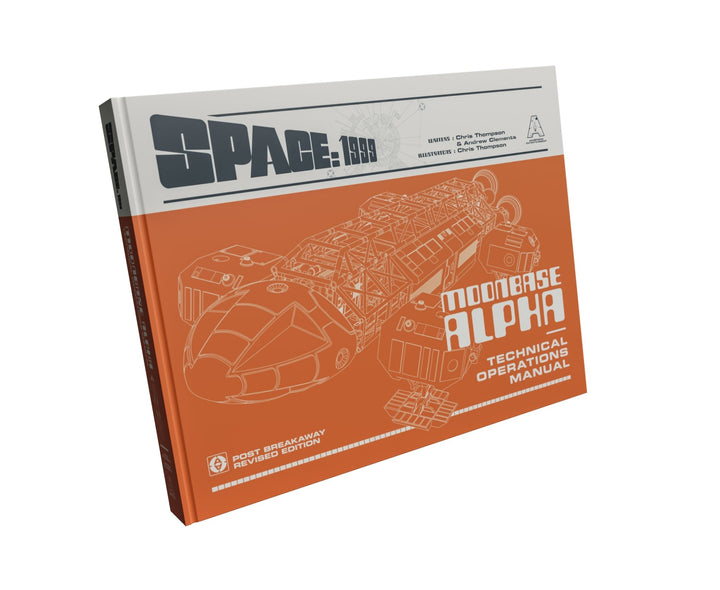
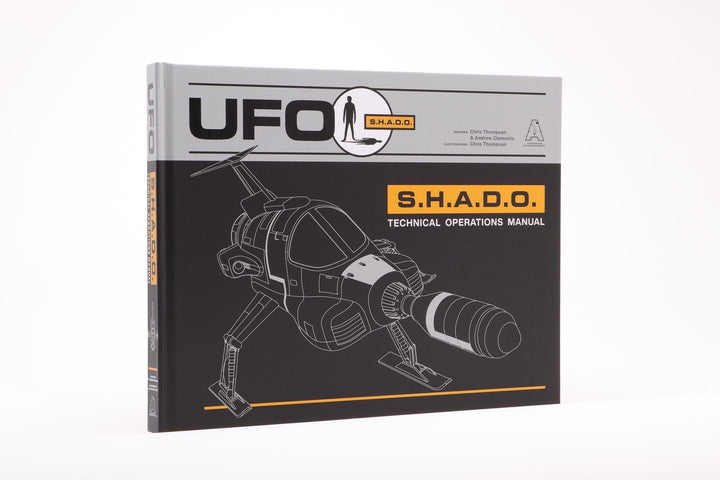
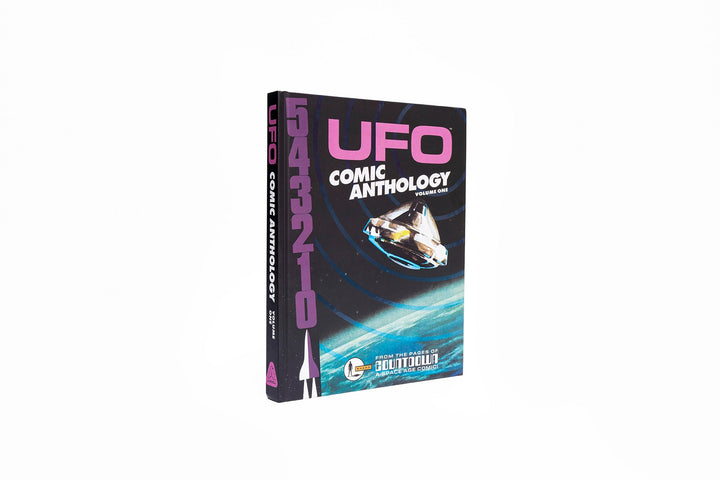
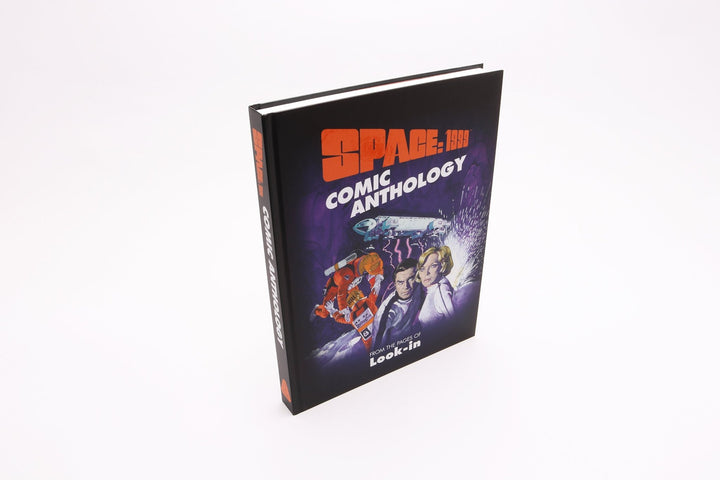
![Fireball XL5 World Space Patrol Technical Operations Manual [HARDCOVER BOOK] - The Gerry Anderson Store](http://gerryanderson.com/cdn/shop/files/fireball-xl5-world-space-patrol-technical-operations-manual-hardcover-book-290050.jpg?v=1711729272&width=720)
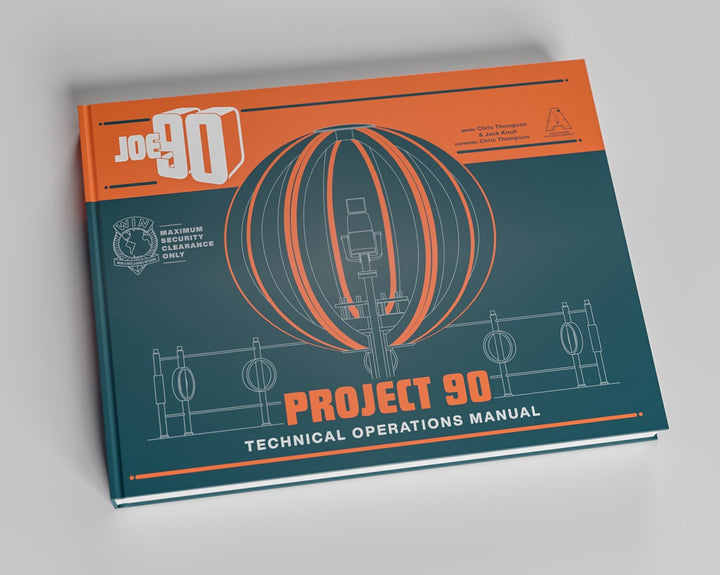
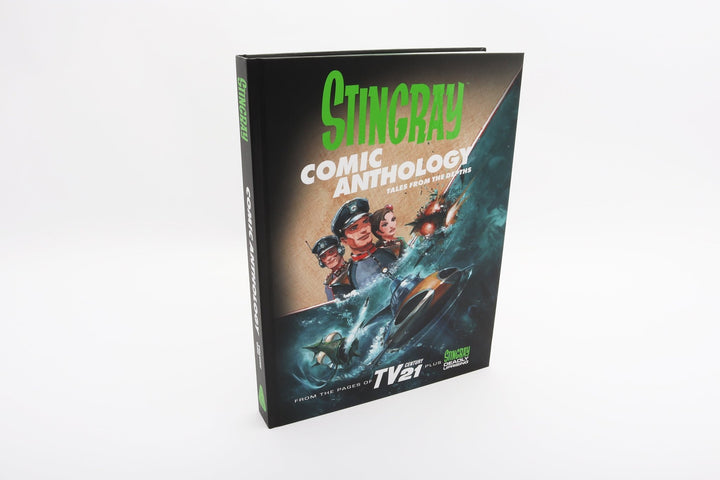

![Stingray Comic Anthology Volume Two – Battle Lines [HARDCOVER] - The Gerry Anderson Store](http://gerryanderson.com/cdn/shop/files/stingray-comic-anthology-volume-two-battle-lines-hardcover-107681.jpg?v=1738856151&width=720)
![Space: 1999 and UFO Book Bundle - Signed Limited Editions [HARDCOVER NOVELS] - The Gerry Anderson Store](http://gerryanderson.com/cdn/shop/files/space-1999-and-ufo-book-bundle-signed-limited-editions-hardcover-novels-589446.jpg?v=1718836845&width=720)
![Stingray WASP Technical Operations Manual Special Limited Edition [HARDCOVER BOOK] - The Gerry Anderson Store](http://gerryanderson.com/cdn/shop/files/stingray-wasp-technical-operations-manual-special-limited-edition-hardcover-book-991914.jpg?v=1732922875&width=720)
![Stingray: The Titanican Stratagem – Signed Limited Edition [HARDCOVER NOVEL] - The Gerry Anderson Store](http://gerryanderson.com/cdn/shop/files/stingray-the-titanican-stratagem-signed-limited-edition-hardcover-novel-129251.jpg?v=1740558711&width=720)



